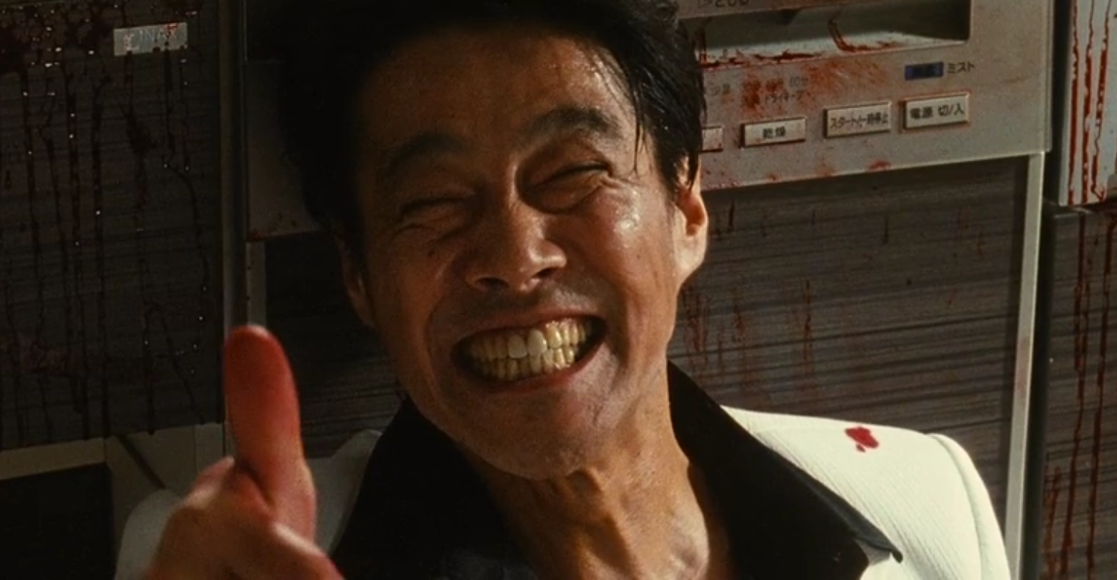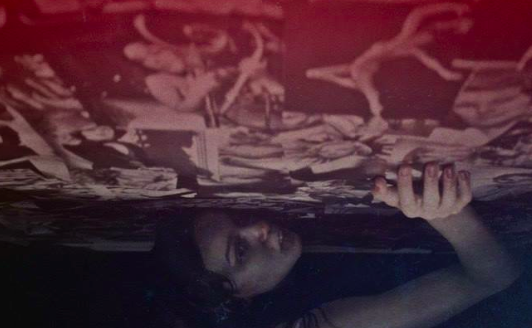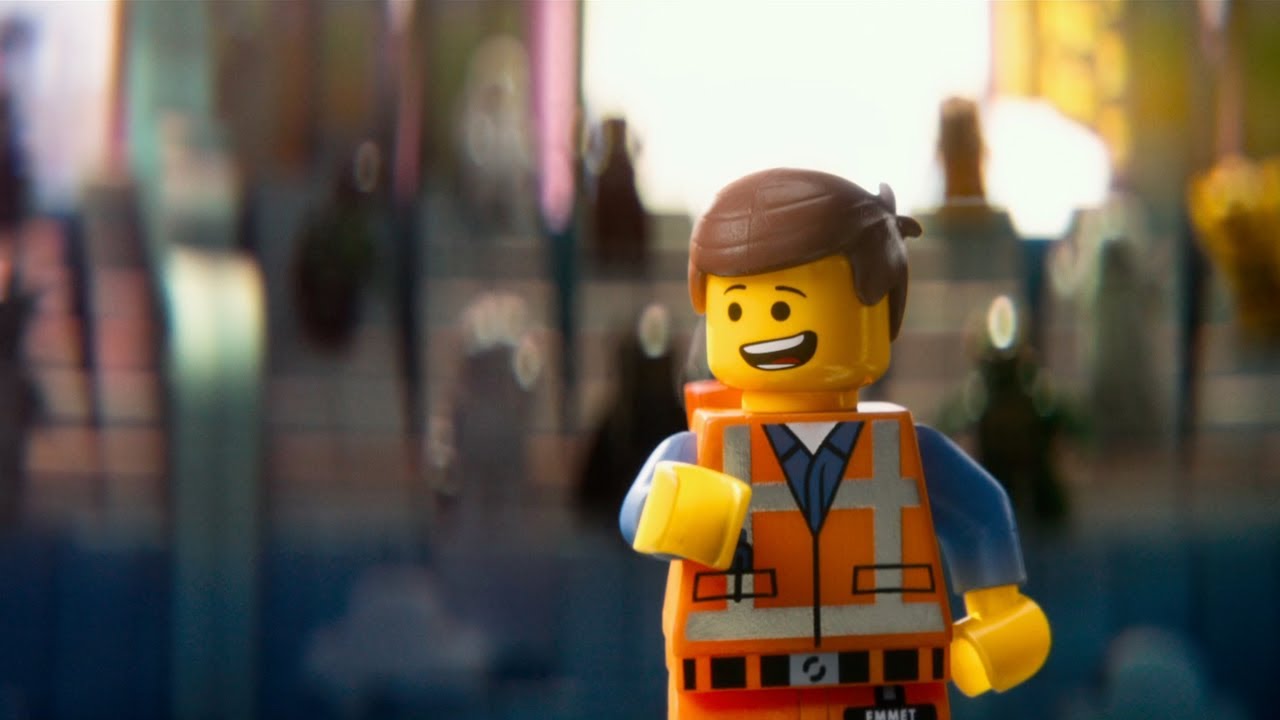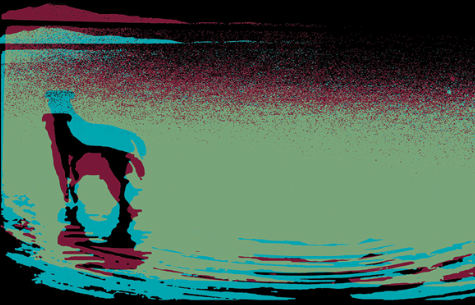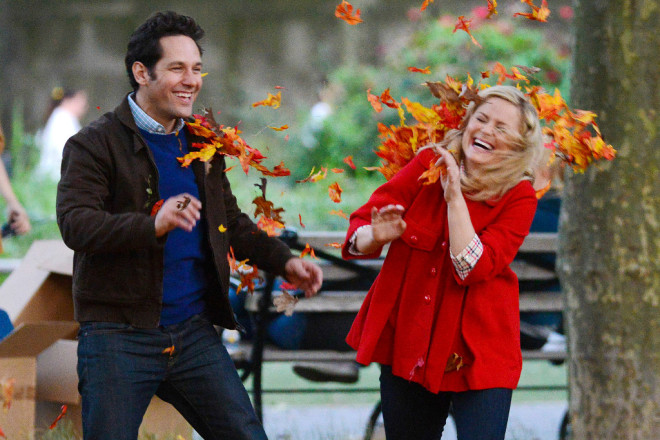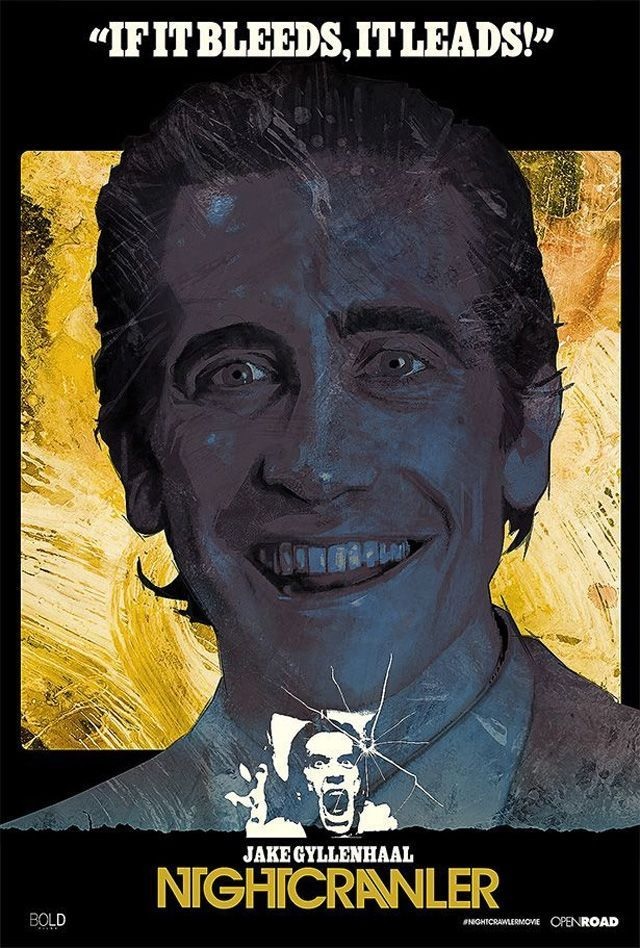Goodness me! Another year gone and where does the time go? Why, it seems like only yesterday that I was excessively tormenting myself over listing the best films of 2013. Remember 2013? I do. Mostly, I remember how amazed I was by
Inside Llewyn Davis - amazed by the pitch-perfect story of a man's soul judged for its marketplace value, amazed that the Coen brothers' best work wasn't even close to behind them. Now I'm just amazed to find us in the 2015 film year. What's next? 2016?! Pfft.
But, if
Interstellar taught us nothing else, it's that time is a slippery wanton to be melded at our intergalactic whim... or something like that. And so, repressing the fact that a year is but a simple blip in the endless ages of time, we bid adieux to the flickers of 2014, and to the images we'll forever associate with the last 12 months, when we, on occasion, remark, 'Oh yeah! 2014. I remember that. Silly past. It wasn't even now yet.'
I, for one, think it's been an excellent year at the movies and I can say for certain, that I'll be revisiting several of the films on this list on many occasions. Some titles might just wind up surfacing as future cult relics, for which subsequent generations will say, "Remember the time when no one liked
Inherent Vice?" One sure sign of my reverence for a film is how many times I revisit it in theaters. As a testament to the strength of the 2014 film, I can delightedly report that I saw each of my top five films at least twice on the big screen - my one and two slots I ventured out to see four honkin' times. So with the future in mind, my top 10 films of the year are based on projections of how likely a title is to fit in the overall canon of my all time favorites, thus achieving timelessness. In other words, the following films reminded me why I give a damn about cinema, and in some cases, life. Glory to the filmmaker!!
One film-listing trap that endlessly copulates with my brain pertains to the qualifications of a 2014 film year. In selecting your best-of contenders, do you go by a film’s premiere date or its theatrical release date? I’ve chosen to go with a pure race of unquestionably 2014 films, as defined by both their 2014 festival appearance and theatrical release date. Thus, the following top 5 lists reflect casualties I caught at autumn festivals like TIFF or NYFF/AFI that very well could have made the cut of best of 2014, if I didn’t suffer from uptight cinematic listing neuroses (UCLN).
Top 5 Films of 2013?
- Why Don’t You Play in Hell
- Only Lovers Left Alive
- Joe
- Asphalt Watches
- Blue Ruin / Proxy
Top 5 Films of 2015?
- The Look of Silence
- 10,000 KM
- Creep
- What We Do In The Shadows
- It Follows
The Contenders (alphabetical)
Any one of these films could've taken my number 10 slot, and some did during the constant reshuffling of my list. Though the following titles didn't make the cut, they're nevertheless films that I love and will wholeheartedly be recommending to friends for years to come.
Edge of Tomorrow
Force Majeure
Foxcatcher
A Girl Walked Home Alone at Night
The Grand Budapest Hotel
The Guest
I Origins
Interstellar
Listen Up Philip
Maps To The Stars
The One I Love
Space Station 76
Starry Eyes
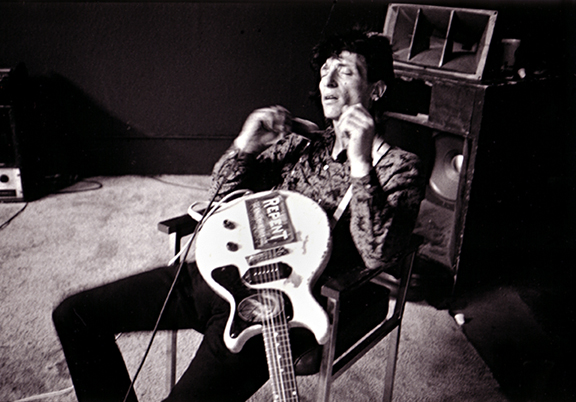
2014 was a very fruitful year in the documentary category, especially as far as Rockumentaries are concerned. Leading the Rockumentary pack we have the surprisingly loaded Nick Cave portrait, 20,000 Days On Earth, a film that, in addition to capturing the essence of Cave’s artistic drive, also offers an insightful look into the energies required to create, and in turn perform – two entirely different monsters the film’s directors are able to explore more effectively than that to which the genre is accustomed.
As for regular documentaries, it simply does not get better than Jodorowsky’s Dune, a film, mostly driven by talking heads, that somehow communicates an epic unrealized vision with mere words and pictures. It, of course, helps that the pictures would more accurately be described as grandiose sci-fi illustrations, effectively suggesting the fantastical awe striking Dune world, and that the ‘words’ in question are coming from Jodorowsky, a prophetic wordsmith with a larger-than-life world perspective. Normally, when adapting a work, a writer has reservations about changing a source text. Jodo makes no secret of his intention to artistically “rape” Frank Herbert’s Dune for the good of cinema. Had he achieved this aim, Dune would have altered the blockbuster landscape, making films like Star Wars a footnote in its wake. The extraordinary thing about Pavich’s documentary is his successful resurrection of a dead dream and astute presentation of Jodorowsky as an unapologetic visionary, too pure for his industry.
Top 5: Documentary
- Jodorowsky’s Dune
- Rich Hill
- The 50-Year Argument
- The Dog
- Citizen Four
Top 5: Rockumentary / Tour Film
- 20,000 Days on Earth
- Looking for Johnny: The Legend of Johnny Thunders
- Harmontown
- The Past is a Grotesque Animal
- A Life In The Death Of Joe Meek
The Babadook
I've seen enough horror in my time to have developed a healthy desensitization to all things aimed at evoking fear, yet I felt myself as afraid of The Babadook as kids likely are of the bogeyman. While I've seen, and very much enjoyed, The Babadook, I still can't say what a Babadook is any more than I could offer a tangible description of the bogeyman. If I could, I imagine neither creature would be especially frightening. First time director, Jennifer Kent, offers a shockingly sophisticated, well-crafted haunting world, well capable of reigniting a grown man's fear of the dark.
The Lego Movie
The Lego Movie is what every kid’s film should strive for – a movie equally entertaining for kids as well as their accompanying guardians, brought home with a lesson worthy of digestion by young minds. The Lego Movie offers all this and more, as evidenced by the night screening I caught. The theater didn't have a kid in the house, and yet upon leaving, I wasn’t surprised to overhear the entire audience singing The Lego Movie’s praises.
Goodbye To Language 3D
Excerpt from ScreenAnarchy TIFF Highlights:
After Godard’s previous feature, Film Socialisme, left me bored and befuddled at TIFF 2010, his remarkable foray into the third dimension, Goodbye To Language 3D, was somewhat of an extremely pleasant surprise. Godard’s latest is the most refreshingly alive and playfully carnival-esque work to come from the master of freeform, stream-of-consciousness cinema in many a year. Like a surrealist kid in a candy store, Goodbye To Language peppers its audaciously complicated images with ever-profound and poetic quotes, remarks and scenarios exploring everything from canine communication to the relationship between love and excrement. Godard’s frames skew perspective with eye-splitting trickery and brazen disregard for accurate depth of field, leaving a neighboring audience member muttering, ‘oh man, I’m gonna puke…’ Bravo!
They Came Together
Thinking back to the abnormally excellent 2001 movie year, of the film’s still in my life, David Wain’s Wet Hot American Summer is right up there with Mulholland Drive, Waking Life, and The Royal Tenenbaums. I predict, in a decade’s time, I’ll be able to say the same for They Came Together, a film that brought me endless joy this year.
It’s no surprise that Wain’s new rom-com spoof, They Came Together, is as good as Wet Hot, especially considering the film was penned around the peak of the cloying Meg Ryan/Tom Hanks vehicle. Though it took over 15 years to come into fruition, They Came Together is still a refreshingly absurdist attack on the evil genre that would make the Zucker brothers proud, if not awed, by Wain and Co’s new wave comedy.
Mr. Turner
In Mr. Turner, Mike Leigh returns to the 19th century, which is apparently a period in which he thrives in, considering his wonderful film Topsy Turvy. Like Topsy Turvy reflects the exuberant madness of Gilbert and Sullivan, Mr. Turner exists within a J.M.W. Turner landscape. But beyond the film’s truly stunning cinematography, what makes Leigh’s latest such a marvel concerns his collaboration with Timothy Spall, a Leigh veteran who has really outdone himself this time around. Spall is endlessly watchable and quite hilarious in his portrayal of Turner, the English Romantic landscape painter, who regarded the new wave of portrait artists with incredulity. The film may strike some viewers as a drama, but one scene, in which Turner stands still posing for a first generation pin-hole camera, is among the year’s most tickling.
Nightcrawler
Though I’ve already expressed my admiration for this film in the ScreenAnarchy year end round-up, let me once more state what a pleasurably nasty experience it is to watch and re-watch Nightcrawler, a timely indictment of the thinning gap between the news and entertainment industries. It’s both funny and scary because it’s true.
Birdman
The inflated self worth granted to celebrities by Hollywood has surely caused its share of high-profile existential crises. That Birdman chooses to explore these themes using my generation’s Batman makes an already incredible premise too good to be true. For some, its ambitious narrative device ruins the film. For me, Birdman, and it's thoughtful rumination over the distinction between actors and celebrities is richly farcical, brilliantly acted, and kinetically alive in a way that makes the film far more of an event than any superhero movie released since 1992.
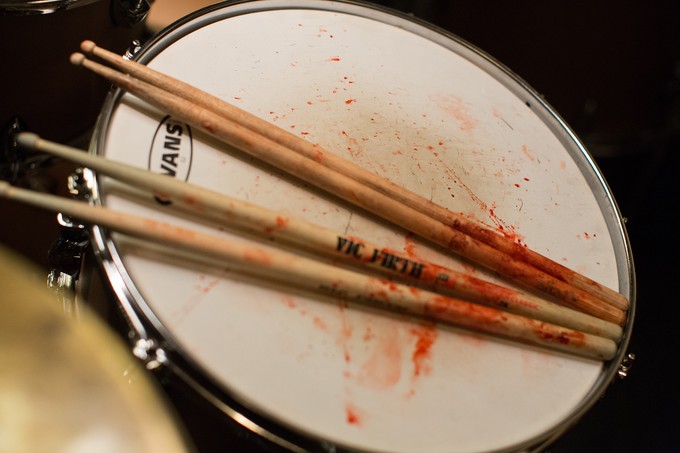
Whiplash
It may seem strange to call a film about a music student the most intense film of the year, yet anyone who's seen Whiplash can attest that the film’s stakes feel higher than any lauded thrill ride. This is mostly because writer/director, Damien Chazelle, a former intensive music student himself, understands the costs of investing everything into a sense of higher calling.
So too does the Whiplash’s layered villain, Fletcher, a virtuoso jazz musician turned professor, who is only interested in training pupils with unnaturally masochistic commitment to the prize, as it's his firm belief that therein lies the key difference between talent and greatness. Fletcher feels so passionately about this, it's hard to fully fault his violent tutelage. In Andrew, Fletcher sees a student worthy of his boot camp mentorship, aiming to kick his ass into musical immortality. In Fletcher, Andrew recognizes an opportunity to prove he has what it takes.
Fletcher’s methods are unforgivably inappropriate and, in certain cases, psychologically damaging. A lesser film would admonish him, and to an unmistakable degree Whiplash does, but what elevates Chazelle’s talent into greatness is his gall to sidestep the politically correct route, implying that perhaps there is no great gain without ungodly hoards of pain. At the very least, he's learned enough to recognize it's a complicated issue. The way Chazelle communicates this issue in Whiplash's final oscillating dance of wills is astounding.
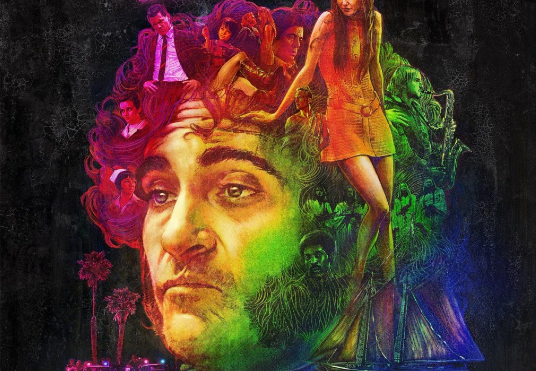
Inherent Vice
PTA’s glorious neon anti-noir is set into motion when Doc’s ex-old lady goes groovy on him – “She went Shasta Fay airport” he’s told by his hippie stompin’, Dragnet minded, frienemy, Detective Bigfoot Bjornsen. From the onset of Can’s Vitamin C onwards, Inherent Vice finds Doc navigating through a smoke-shrouded mystery, vaguely concerning something called the golden fang - which Doc’s told to ‘beware’. He doesn’t know much, and what he does know is a little over his head, but with stoner’s ESP in tow, Doc juggles multiple investigations such as the disappearance of a disposable surf-sax player, the whereabouts of his runaway flower-child, the mysterious death of the 60s dream, which side of the paper the sticky part is on... and… um…
…Anyway, Phoenix is at his comedic peak as the befuddled PI who puts on a good front with priceless mixed-reactions to the bizarrely unfolding case. Inherent Vice is a film that loves noir, but recognizes the fun is in the seduction of the mystery more than its resolution. It’s also a snapshot of simpler times, before bad vibes infiltrated the good, washing love-fueled days onto the shores of a bygone past. Finally, it’s about enjoying a good thing while it lasts… and other surfedelic hippiphanies. It’s perfect.
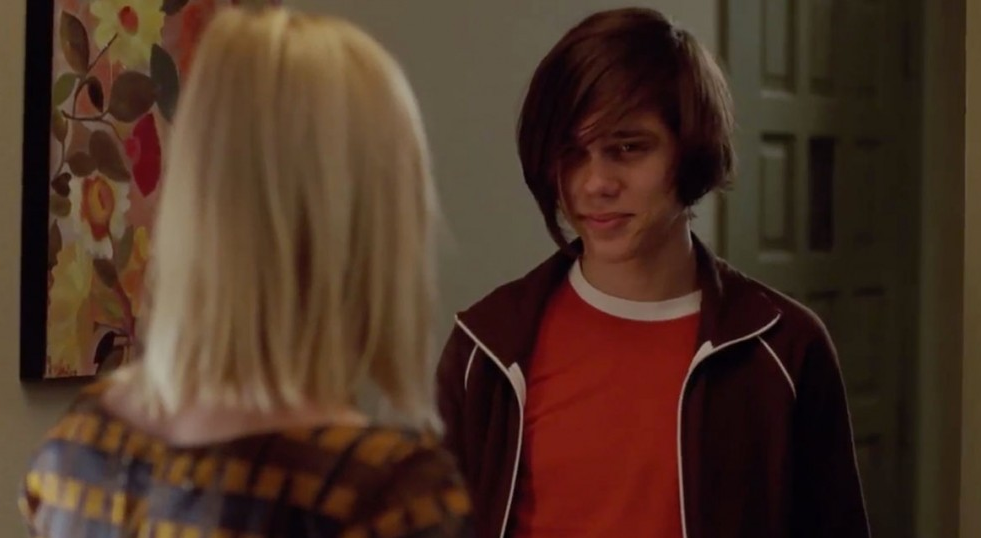
Boyhood
Though the film’s narrative ambition is great fodder for publicity purposes, the achievements of Boyhood have everything to do with Linklater’s observationally meditative screenplay joining forces with life to capture the development of a personality, and the seemingly insignificant moments that add up to define our initiation into the free-thinking world. Mason spends the first six years going with the flow of life. He’s taken here, sent there, told what’s what, as all you can do as a kid is watch the adult world and surmise what you will. Linklater, an observer if nothing else, begins with a soft touch, allowing life from 2001 onwards to simply exist. Mason’s life, as he finds himself coming of age in the American post-millennial dawn, is what it is in the arbitrary era that serves as its backdrop.
But as Mason grows, though Linklater’s airy presentation stays light as the wind, the film enters weighty territory wherein lessons are learned in passing without being over-articulated, and wisdom comes unseemingly with age. It doesn’t necessarily feel like it during the present, but life passes so quickly, it’s enough to make a mother mourn the bittersweet passage of time, wondering what became of those simple moments that seemed like nothing, yet added up to everything. It's hard to even talk about Boyhood without drifting off into flowery sentiment, but nevertheless, a film capable of inspiring this kind of introspective discussion is surely a sign of its greatness. Like life, Linklater’s ultimate coming-of-age story adds up to a beautiful, hefty sigh.

Do you feel this content is inappropriate or infringes upon your rights?
Click here to report it, or see our
DMCA policy.





























